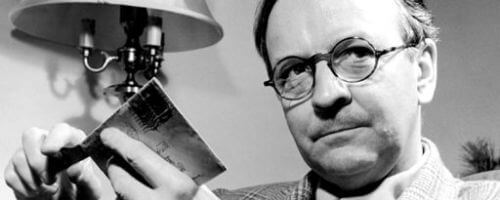The Legacy of Raymond Chandler
A ‘Lost’ Generation, Found: Raymond Chandler’s Legacy
Many 20th-century writers, particularly in the post-Vietnam era, cite Raymond Chandler as one of their main influences. Inspired by his self-consciousness within the genre and his desire to understand and explore the confines of the form, contemporary writers took their lead from Chandler’s war-veteran detective, Philip Marlowe, in their efforts to push the boundaries and create a crime literature. As Leroy Panek noted, “The hard-boiled books of the last quarter of the century repeatedly and clearly pay homage to Raymond Chandler” (205). But why is this? While Chandler was a superb writer, what is it that influenced so many writers to shape their protagonist in Marlowe’s mold?
What I intend to demonstrate here is that the impact of war on the crime genre has highlighted its capacity for dissent and antagonism, thereby
locating the style at the forefront of subversive fiction and providing a robust platform to draw attention to the traumatizing impact of war and a corrupt state. In the post-World War Two environment, war veteran writers like Elmore Leonard, Charles Willeford, and Robert B. Parker, influenced by the hard-boiled magazine Black Mask and writers like Chandler, provided an important bridge between the genre’s early themes and the post-WWII consumerist glut. Willeford’s military background, in particular, certainly colored the worldview of his novels and toughened the style. His characters are tainted by war and are frequently veterans who, as David Cochran notes, “often apply wartime morals to their lives” (41). Colorfully describing Willeford’s style and characterization, Lou Sathis said: “These are scary motherfucking books, lulling you with blandly innocent faces and then sneaking up behind you with exacto knives to open your spine like a puffed-up fish belly. Nasty” (7). And it is Willeford who also provides the link between the veteran writers of World War Two and post-Vietnam writers. Viewing crime fiction as a subversive style that could draw upon and convey the utter distrust and anger of veterans toward the government and society, post-Vietnam crime writers jumped at the opportunity to develop the genre’s extraordinary ability to utilize the violence of articulation and the articulation of violence.
Writers like James Crumley, Robert Stone, Newton Thornburg, James Lee Burke, Jeremiah Healy, Robert Crais, Benjamin M. Schutz, Robert Ray, and Geoffrey Norman have each incorporated flawed war-veteran detectives as the protagonist of what I have labeled “war noir” fiction (Trott). And notably, in their efforts to push the boundaries of the genre, many writers returned to Chandler’s hard-boiled style for inspiration. Like the earlier Lost Generation, post-Vietnam literature similarly depicted a generation that had been “lost” to war, and the traumatized characterization of the detective became far more perceptible. Detectives in this era were “psychologically scarred inhabitants of a morally ambiguous world in which people are capable of perpetrating any and every outrage” (Haut 4-5). Unlike the detective fiction of Chandler’s era, the post-Vietnam crime genre sought to establish a far closer link with the past and confront personal traumas head-on.
Recognizing the traumatic consequences of warfare, contemporary writers no longer felt compelled to keep trauma hidden and managed to successfully articulate their anger and resentment. By communicating their pain and suffering through their work, writers conveyed personal expression that played a significant role in the development of the genre. Character psyche became an important feature of post-Vietnam crime fiction, and detectives became more openly flawed and damaged, thereby portraying the emotional complexity at the heart of contemporary society. By expressing traumatic suffering through their work, writers reached a new level of authenticity in the same way that Chandler had done less than half a century earlier.


